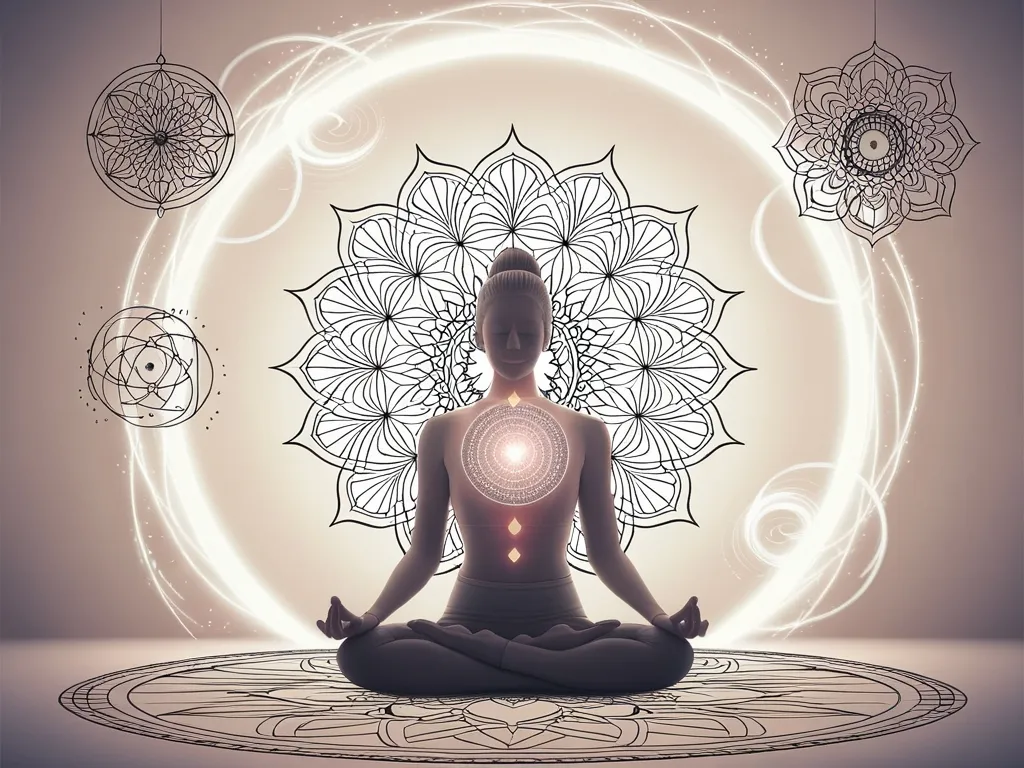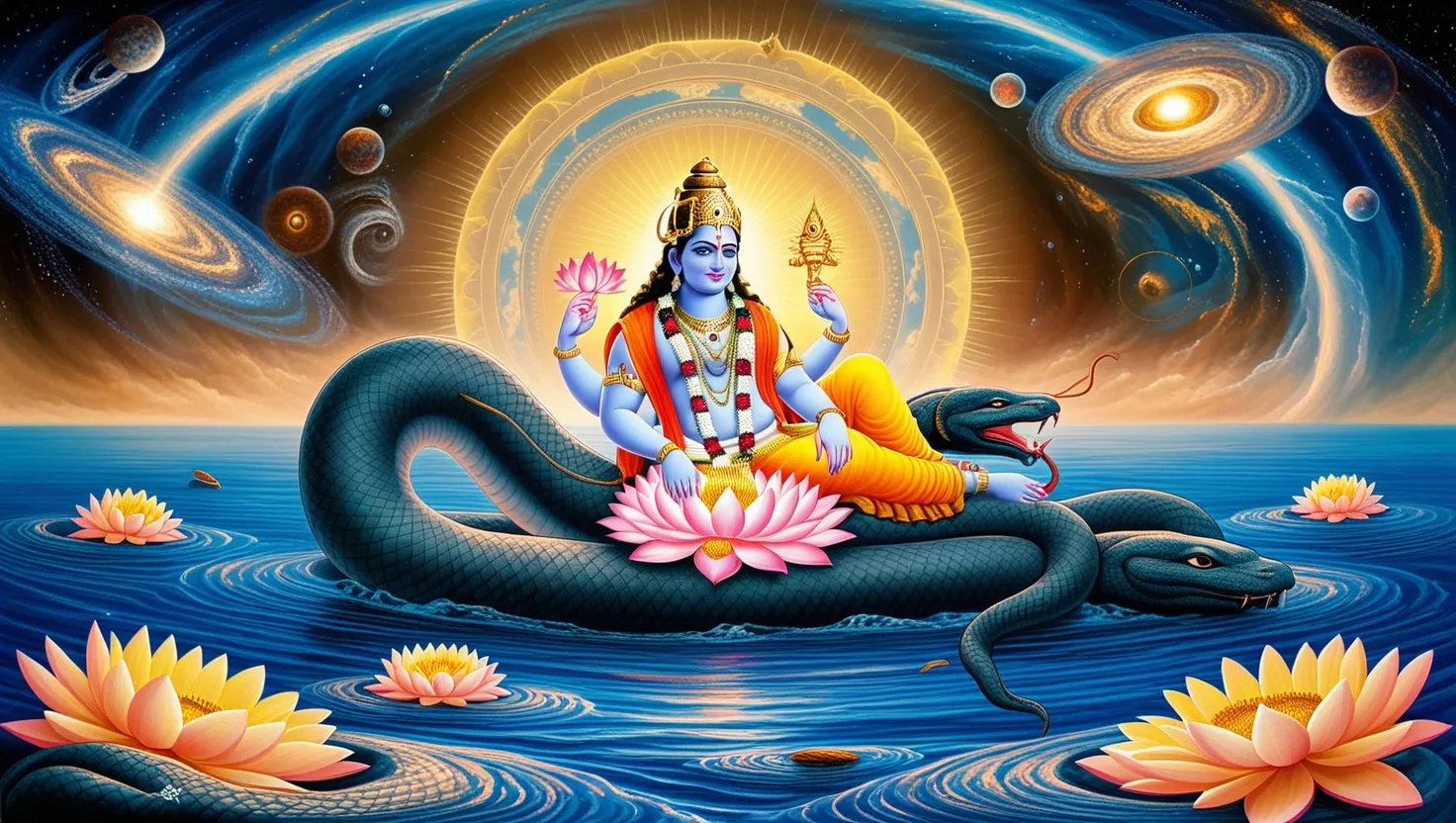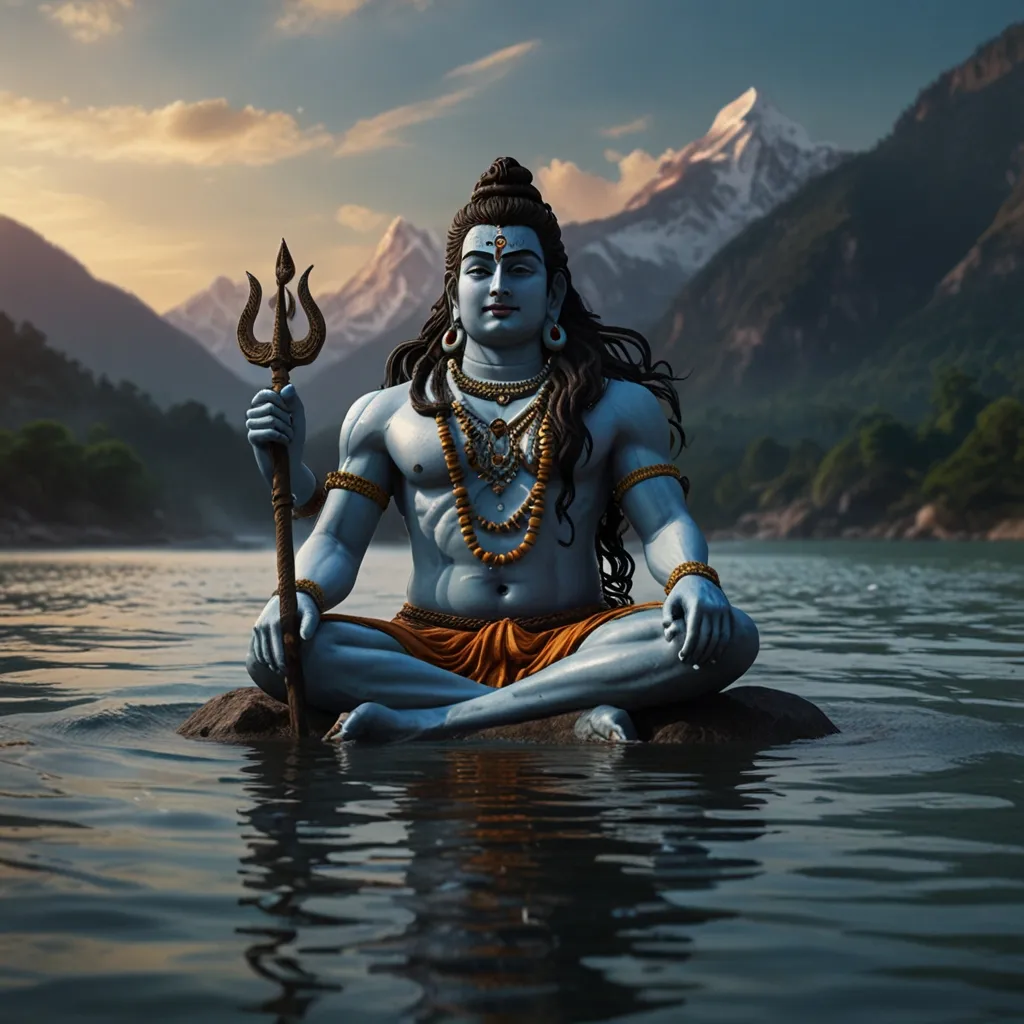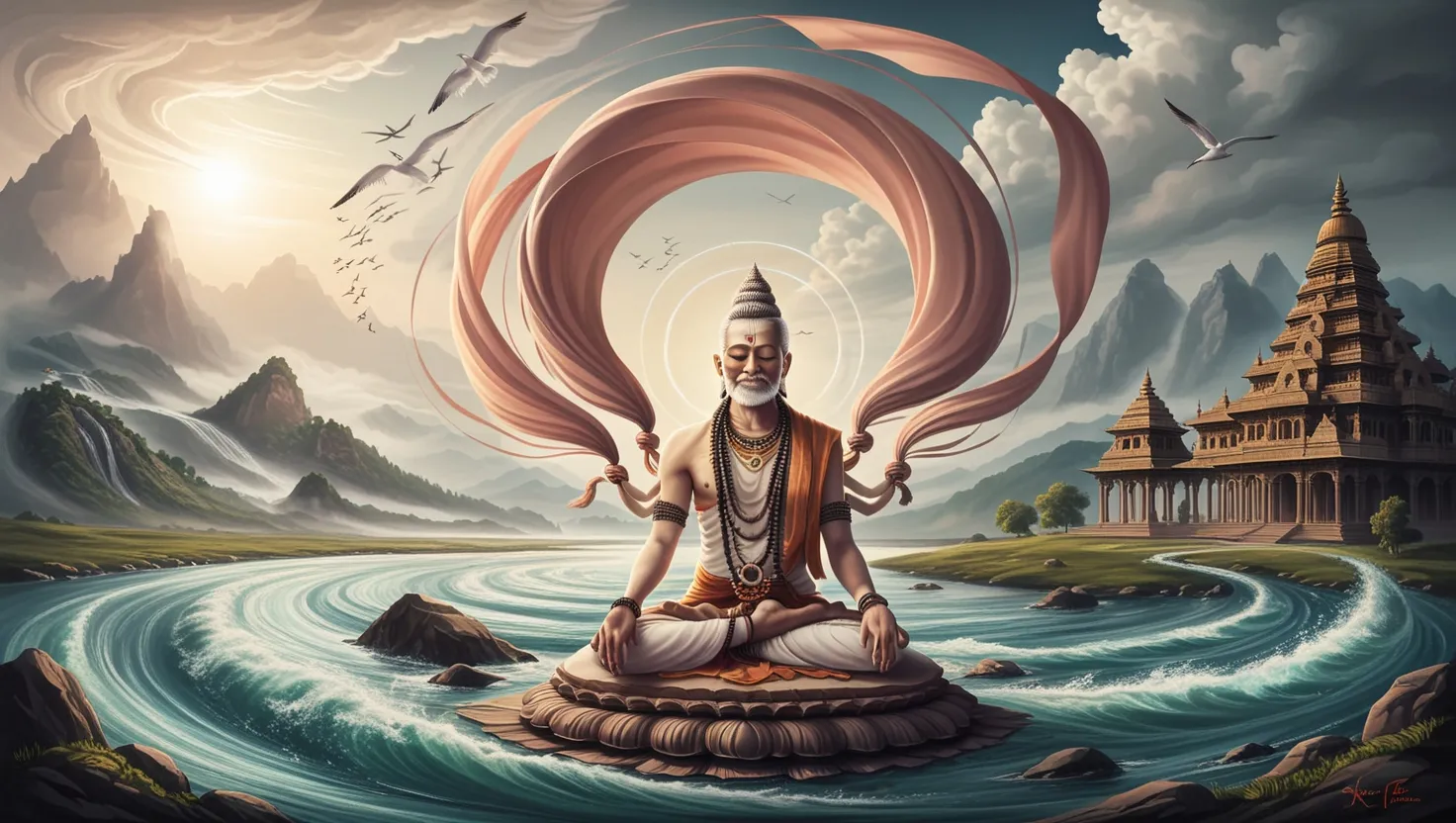In the vast and intricate landscape of Advaita Vedanta, there exists a fascinating concept that sheds light on the nature of reality and our place within it: Pratibimba Vada, or the theory of reflection. This philosophical framework, rooted in ancient texts and elaborated by later thinkers, offers a unique lens through which to understand the complex interplay between the absolute and the apparent world.
At its core, Pratibimba Vada posits that the individual self, or Jiva, is merely a reflection of the ultimate reality, Brahman. This idea is often illustrated using the analogy of a reflection in a mirror or the sun’s image in a body of water. Just as the sun’s reflection in water appears as a separate entity but is essentially the same as the sun itself, the Jiva is seen as a reflection of Brahman, sharing its essence but appearing distinct due to the limitations imposed by ignorance or Avidya.
This theory is closely associated with Padmapada, the founder of the Vivarna School of Advaita Vedanta. According to Padmapada, Brahman is the locus of Avidya, and the Jiva is a mere reflection of this ultimate reality. This reflection is not a separate entity but an integral part of Brahman, much like a gold bangle or ring is not separate from the lump of gold from which it is crafted. This non-dual perspective underscores that the Jiva and Brahman are ultimately one, with the Jiva’s existence being a manifestation of Brahman’s inscrutable power.
The concept of Pratibimba Vada helps to resolve the paradox of unity and diversity that is central to Vedantic thought. In this view, the diverse world we experience is akin to multiple reflections of the same sun in different bodies of water. Each reflection appears unique due to the specific conditions of the water (such as ripples or clarity), yet they all originate from the same sun. Similarly, the various Jivas, though appearing distinct, are reflections of the singular Brahman, each influenced by their own unique set of limitations and ignorance.
This theory also addresses the nature of consciousness and existence. According to Pratibimba Vada, consciousness is not fragmented but is a unified whole reflected in multiple minds. The purity of the mind determines the quality of this reflection, much like a polished mirror reflects light more clearly than a tarnished one. This implies that the animating aspect of all beings is the same Atman-Brahman, even though each being functions separately due to their individual minds and bodies.
The distinction between the empirical and absolute realities is another crucial aspect of Pratibimba Vada. In empirical reality (Vyavaharika), we experience the world through our senses and minds, which are subject to the limitations of Avidya. However, from the absolute perspective (Paramarthika), all existence is Brahman, and the distinctions we perceive are merely reflections or projections of this ultimate reality. This dual perspective is not contradictory but complementary, allowing us to navigate both the practical world and the deeper truths of existence.
One of the key debates surrounding Pratibimba Vada is its comparison with another Advaitic theory, Avacchedavada, or the theory of limitation. Avacchedavada, attributed to Vacaspati Misra, suggests that the Jiva is a limited aspect of Brahman, rather than a reflection. However, proponents of Pratibimba Vada argue that limitation implies ignorance, which cannot be the locus of the Universal Self. Instead, they propose that the reflection analogy better explains how the absolute consciousness can manifest in individual selves without losing its essential unity.
In practical terms, understanding Pratibimba Vada can offer profound insights for self-inquiry and spiritual growth. By recognizing that our individual selves are reflections of the ultimate reality, we can begin to see through the illusions that separate us from our true nature. This realization can lead to a deeper sense of unity and interconnectedness with all existence, fostering a more compassionate and enlightened approach to life.
The concept of Pratibimba Vada is not just a philosophical abstraction but a living, breathing framework that can be applied to everyday life. It encourages us to look beyond the surface level of reality and to see the world as a multifaceted reflection of the divine. As we navigate the complexities of our existence, this theory reminds us that we are not isolated entities but integral parts of a larger, unified whole.
In the end, Pratibimba Vada is an invitation to explore the depths of our own consciousness and to discover the reflection of the divine within ourselves. It is a reminder that the journey to self-realization is not about discovering something new, but about recognizing what has always been present – the reflection of Brahman in our very being. This understanding can transform our perception of the world and our place in it, leading us to a more profound and meaningful existence.






